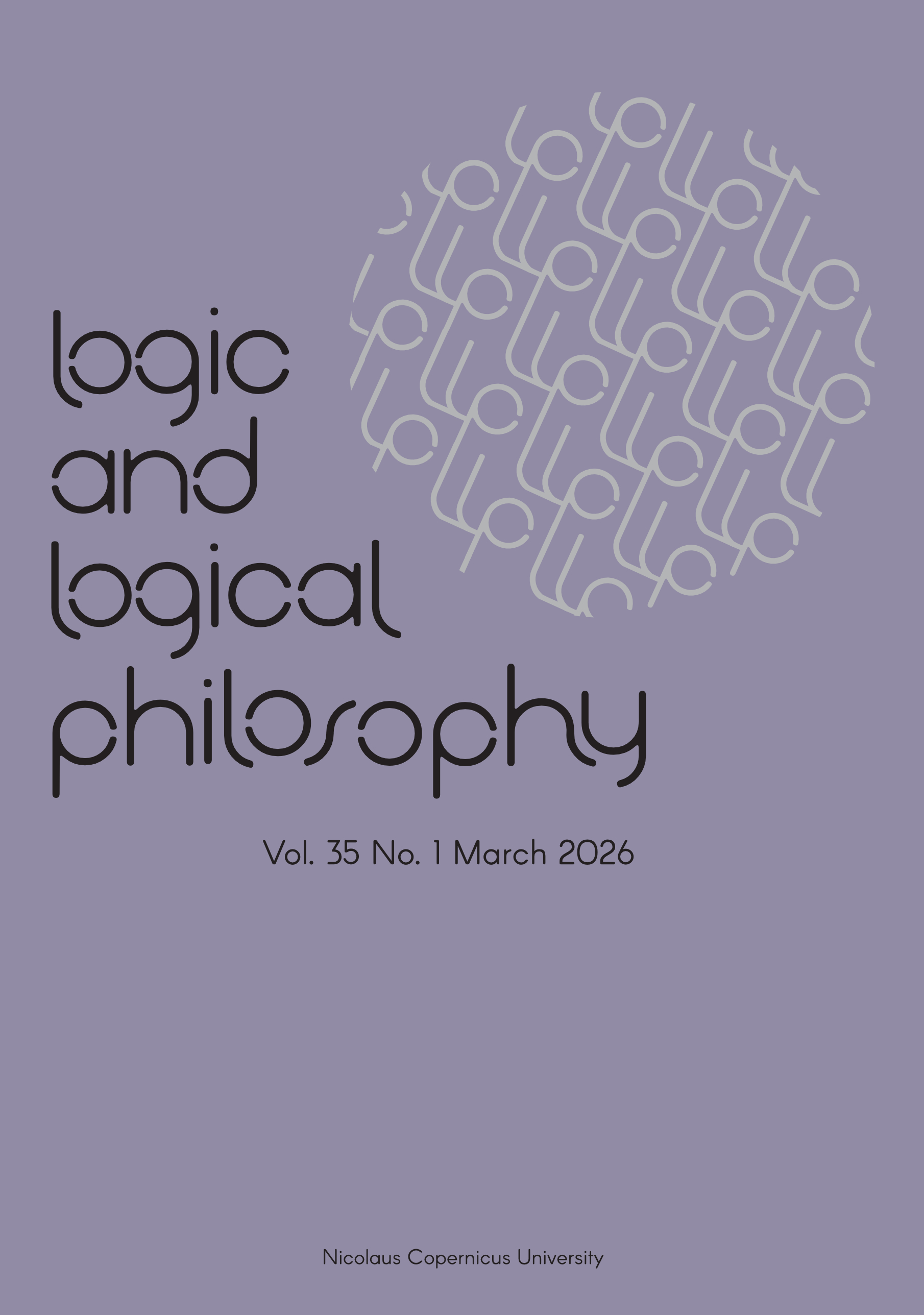On What There Is Not
Extensible markup language and rules for making inferences
DOI:
https://doi.org/10.12775/LLP.2025.007Słowa kluczowe
philosophy of language, markup languages, rules for making inferences, philosophy of computer scienceAbstrakt
This paper investigates how the use of different rules for making inferences affects our understanding of what certain Extensible Markup Language (XML) documents do not represent. The aim is to show that we can infer different, contrasting things from the same XML documents, thereby weakening the communication that XML is supposed to support. There are three main reasons why the paper focuses on XML. First, XML, as a metalanguage, has no inherent rules for making inferences, but it also has no constraints on the technologies, systems, or theories that support or define the rules that can be used in conjunction with it. Second, XML is still widely used, and there are many other markup languages based on XML. This means that the critical analysis of these pages is, in principle, extendable to contexts where XML is involved and/or the rules for making inferences are not inherently supported. Third, since XML is explicitly intended to support communication between people, between software applications, and between people and software applications, this analysis may also shed new light on some of the theoretical assumptions behind such communication.
Bibliografia
Attenborough, M., 2003, Mathematics for Electrical Engineering and Computing, Newnes: Oxford.
Baader, F., I. Horrocks, C. Lutz and U. Sattler, 2017, An Introduction to Description Logic, Cambridge University Press: Cambridge.
Baader, F., I. Horrocks and U. Sattler, 2004, “Description logics”, pages 3–28 in S. Staab and R. Studer (eds.), Handbook on Ontologies. International Handbooks on Information Systems, Springer: Berlin, Heidelberg.
Bauman, S., 2011, “Interchange vs. Interoperability”, in Proceedings of Balisage: The Markup Conference 2011, Balisage Series on Markup Technologies, vol. 7. https://balisage.net/Proceedings/vol7/html/Bauman01/BalisageVol7-Bauman01.html
Canducci, M., 2022, XML per tutti, Apogeo: Milan.
Cumpa, J., 2020, “Categories”, Philosophy Compass 15(1): e12646. DOI: https://doi.org/10.1111/phc3.12646
Dykes, L., 2005, XML for Dummies, 4th ed., Wiley: Hoboken.
Franzén, N., 2021, “Fictional truth: In defense of the reality principle”, pages 88–106 in E. Maier and A. Stokke (eds.), The Language of Fiction Oxford University Press: Oxford.
Friend, S., 2017, “The real foundation of fictional worlds”, Australasian Journal of Philosophy 95(1): 29–42. DOI: https://doi.org/10.1080/00048402.2016.1149736
Henley, S., 2006, “The problem of missing data in geoscience databases”, Computers & Geosciences 32(8): 1368–1377. DOI: https://doi.org/10.1016/j.cageo.2005.12.008
Lewis, D., 1978 “Truth in fiction”, American Philosophical Quarterly 15(1): 37–46.
Li, X., Z. Wu, M. Goh and S. Qiu, 2018, “Ontological knowledge integration and sharing for collaborative product development”, International Journal of Computer Integrated Manufacturing 31(3): 275–288. DOI: https://doi.org/10.1080/0951192X.2017.1407876
Lutz, C., I. Seylan and F. Wolter, 2012, “Mixing open and closed world assumption in ontology-based data access: Non-uniform data complexity”, in Y. Kazarov, D. Lembo and F. Wolter (eds.), Proceedings of the International Workshop on Description Logics, DL 2021, CEUR Workshop Proceedings, vol. 846. https://ceur-ws.org/Vol-846/paper_17.pdf
Porello, D., and U. Endriss, 2014, “Ontology merging as social choice: Judgment aggregation under the open world assumption”, Journal of Logic and Computation 24(6): 11229–11249. DOI: https://doi.org/10.1093/logcom/exs056
Razniewski, S., O. Savkovic and W. Nutt, 2016, “Turning the partial-closed world assumption upside down”, in R. Pichler and A. Soares da Silva (eds.), Proceedings of the 10th Alberto Mendelzon International Workshop on Foundations of Data Management, Panama City, Panama, May 8–10, 2016, CEUR. https://ceur-ws.org/Vol-1644/paper3.pdf
Rector, A., S. Schulz, J. M. Rodrigues, C. G. Chute and H. Solbrig, 2019, “On beyond Gruber: ‘Ontologies’ in today’s biomedical information systems and the limits of OWL”, Journal of Biomedical Informatics 100(S): 100002. DOI: https://doi.org/10.1016/j.yjbinx.2019.100002
Russell, S. J., and P. Norvig, 2020, Artificial Intelligence. A Modern Approach, Pearson Publications: London.
Ryan, M. L., 1980, “Fiction, non-factuals and the principle of minimal departure”, Poetics 9(4): 403–422.
Salminen, A., and F. Tompa, 2011, Communicating with XML, Springer: New York.
Tambassi, T., 2022, “Completeness in information systems ontologies” Axiomathes 32(2): 215–224. DOI: https://doi.org/10.1007/s10516-021-09598-9
Tambassi, T., 2024, “Do ontologies always support communication of their content among human agents?”, AI & Society: Knowledge, Culture and Communication. DOI: https://doi.org/10.1007/s00146-024-02100-0
Thomasson, A., 2019, “Categories”, in E. N. Zalta and U. Nodelman (eds.), The Stanford Encyclopedia of Philosophy. https://plato.stanford.edu/archives/win2022/entries/categories/
Walton, K., 1990, Mimesis as Make-believe: On the Foundations of the Representational Arts, Harvard University Press: Cambridge.
Wolterstorff, N., 1980, Works and Worlds of Art, Clarendon Press: Oxford.
Pobrania
Opublikowane
Jak cytować
Numer
Dział
Licencja
Prawa autorskie (c) 2025 Timothy Tambassi

Utwór dostępny jest na licencji Creative Commons Uznanie autorstwa – Bez utworów zależnych 4.0 Międzynarodowe.
Statystyki
Liczba wyświetleń i pobrań: 1164
Liczba cytowań: 0







